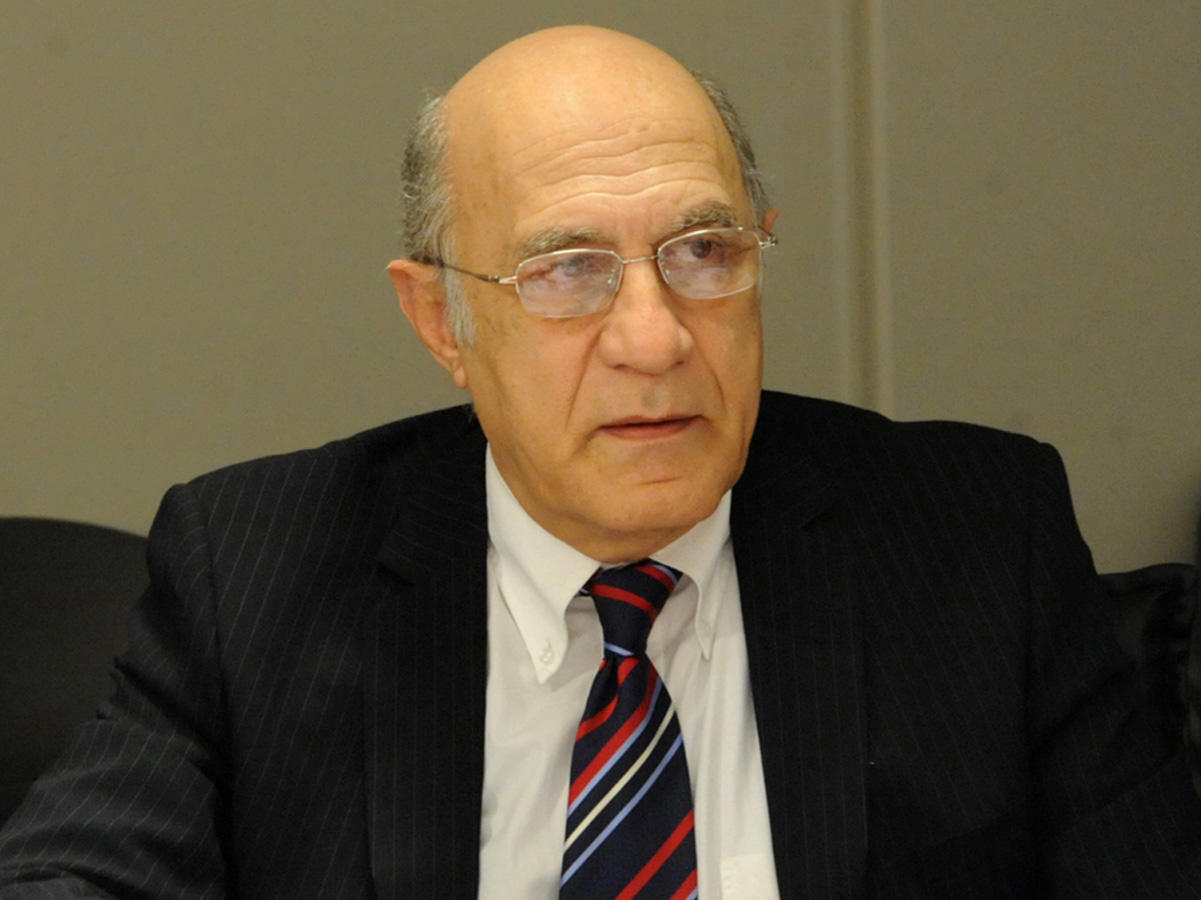Analyst: Pashinyan’s statements confirm his unwillingness to negotiate with Azerbaijan

By Trend
The statements by Armenian Prime Minister Nikol Pashinyan that “the proposal to return Nagorno-Karabakh to the negotiating table is not a proposal to change the format, but to restore the negotiation format” is another verbal bravado devoid of any logic, Fikret Sadikhov, the famous Azerbaijani political analyst and former diplomat, told Trend.
He said that the latest statement by the OSCE Minsk Group co-chairs regarding the unchanged format of the negotiation process, as well as similar statements by high-ranking officials of the EU, are serious message to Armenia.
“This suggests that the unambiguous position of the world community in this issue is aimed at supporting the justified position of Azerbaijan in the settlement of the Armenia-Azerbaijan Nagorno-Karabakh conflict,” Sadikhov noted. “Meanwhile, the actions and steps of the Armenian prime minister show that Pashinyan isn’t only an amateur in politics, but also that he, not understanding and absolutely not delving into the essence of the Armenia-Azerbaijan Nagorno-Karabakh conflict, is engaged in usual provocations in the form of trips to occupied Nagorno-Karabakh, making selfies with diaspora members during trips abroad, etc.”
Sadikhov added that Pashinyan’s controversial statements related to the settlement of the Nagorno-Karabakh conflict are irritating the Armenian society as well.
“There are many questions in Armenia to Pashinyan himself, they are connected with the outcome of the negotiations with Azerbaijan, with his plans and vision for resolving this conflict,” Sadikhov said. “Pashinyan makes statements that he can consult with the former presidents of Armenia and reveals their last names. For example, I can’t imagine how he will consult with Armenian former president Kocharyan, who is in jail. That is, all this chatter, designed perhaps for some innovative approaches, suggests that Pashinyan isn’t ready for negotiations and has no clear position towards the conflict’s settlement, he doesn’t know how to behave with Azerbaijan, in conditions when Armenia is far from being in an advantageous position.”
He suggested that Pashinyan’s chatter, which doesn’t correspond to the level of the head of the Armenian government, is related to his understanding of the inevitability of the return of the occupied Azerbaijani territories.
“Pashinyan should do serious work, build foreign policy guidelines and negotiate with Azerbaijan towards resolving the conflict,” Sadikhov noted. “Instead of just waving his hands and making promising statements on the streets, he should implement the decisions adopted and approved within OSCE Minsk Group in Kazan, Madrid and other cities. However, apparently, he believes that today it is still possible to continue the verbal bravado, which, in fact, obliges him neither to make some decisions nor take a specific position on the conflict. Therefore, I think that he is still maneuvering, waiting for some convenient situation in order to reassure his public, which in general expects some concrete, real steps from him.”
The political analyst reminded that the resolutions by the UN Security Council constitute the legal basis for resolving the conflict, and unequivocally confirm the sovereignty, territorial integrity and inviolability of the international borders of Azerbaijan, and also require the immediate, complete and unconditional withdrawal of the Armenian occupying forces from the Azerbaijani territories.
“In its ruling regarding the case of “Chiragov and Others v. Armenia”, the European Court of Human Rights also confirmed that the separatist regime established in the occupied territories of Azerbaijan exists because of military, political, financial and other support from Armenia,” Sadikhov added. “At the same time, this ruling, which points to Armenia’s control over the occupied territories of Azerbaijan, in fact, put an end to Armenia’s continued denial of its responsibility regarding this fact.”
The conflict between the two South Caucasus countries began in 1988 when Armenia made territorial claims against Azerbaijan. As a result of the ensuing war, in 1992 Armenian armed forces occupied 20 percent of Azerbaijan, including the Nagorno-Karabakh region and seven surrounding districts.
The 1994 ceasefire agreement was followed by peace negotiations. Armenia has not yet implemented four UN Security Council resolutions on withdrawal of its armed forces from the Nagorno-Karabakh and the surrounding districts.
---
Follow us on Twitter @AzerNewsAz
